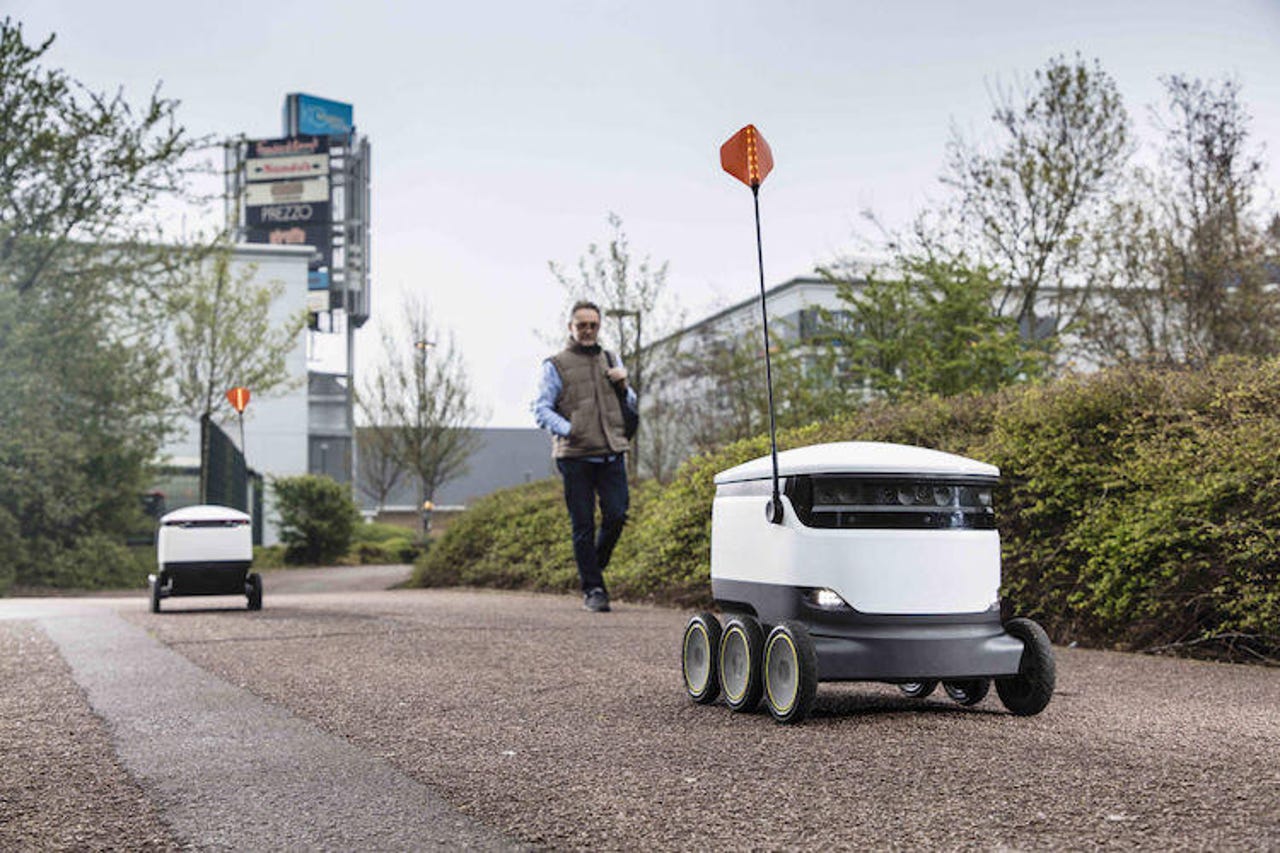Delivery robots maneuvering to devour food delivery market


No-contact pizza delivery? It's free if you're a healthcare worker in certain areas in the U.S. and U.K. served by Starship Technologies, one of a handful of robotic delivery companies whose business models have been in hyper-drive these last few months.
As restrictions related to COVID-19 gradually ease, developers and service providers in the autonomous delivery space are scrambling to eat as much market share as possible in the still-limited locations where they're authorized. But even robotic delivery, which seems perfectly tailored to the locked-in reality of early 2020, hasn't been spared by the pandemic, and these next few weeks will set the tone for the sector for years to come.
In general, the food delivery market is walking a fine line, attempting a sensitive response to the upheaval of these last few months while also keenly aware that there's a customer grab underway and the landscape for the market will largely be remapped during the lockdown. Postmates and Uber Eats have slashed delivery prices and rolled out free delivery programs for certain affected customers, for example, which has the dual advantage of coming off as sensitive and helping the delivery leaders capture new customers.
Autonomous delivery services, which use either autonomous mobile robots or self-driving vehicles to execute deliveries, have been adopting the same strategies, albeit on a scale befitting a much tighter regulatory environment than other delivery services. Starship Technologies, probably the best known of the delivery robots, recently rolled out its robot food delivery service in Fairfax City, VA, for example, touting the access it's given residents to food and grocery delivery during the pandemic. Now the company has announced it's giving free delivery for healthcare workers in the US. The company also offers free delivery to NHS workers in the UK, where its service is available.
"Healthcare workers have been working long hours under stressful conditions and often don't have the time to get to the grocery store," explains Ryan Tuohy, Senior Vice President of Business Development at Starship Technologies. "Our contactless robots can help them get what they need and we've grateful to help so many families during this trying time. We're honored that we can do something to make life a little easier, especially for the healthcare workers who have been on the front lines of this pandemic."
Somewhat offsetting the favorable market conditions for autonomous delivery services have been the widespread closures of spaces testbeds in spaces that skirt municipal and state regulatory environments. A company called Flytrex, for example, made headlines by offering food delivery via drone at a golf course in North Dakota recently. The access-limited space permits management to collect waivers from golfers, which allows Flytrex to avoid strict FAA regulation when operating over public spaces.
Starship Technologies has similarly been taking its food delivery model, in which it pairs fleets of its six-wheeled robots with local providers as part of an as-a-service model, to technology-friendly markets like college campuses. But with golf courses and colleges shuttered for the foreseeable future, those early successes have hit the skids. Most robotic delivery companies, including Starship, are in early stages of longer term strategies and are heavily capitalized, so it's unlikely those lost customers will be any kind of death knell. We'll find out soon if new market adoption and brand awareness opportunities created by the pandemic have offset those losses.
"Starship has been a lifeline for me over the past few weeks," says one healthcare worker, Ann, in Mountain View. "Supporting local business and keeping the risk down is a win-win. Working 80+ hours is rough! These robots bring me what I want in minutes. I love them!"